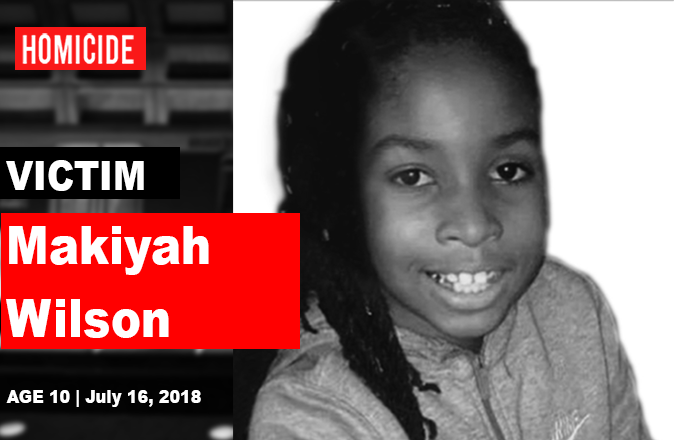
Thank you for reading D.C. Witness. Help us continue our mission into 2024.
Donate NowBy
Rachel Benck [former]
- February 1, 2023
Court
|
Daily Stories
|
Homicides
|
Juveniles
|
Shooting
|
Suspects
|
Victims
|
Six of nine co-defendants in a murder case appeared in court on Jan. 31 in front of D.C. Superior Court Judge Robert Okun for a motion hearing to prepare for trial.
Marquell Cobbs, Darrise Jeffers, Gregory Taylor, Isaiah Murchison, Quentin Michals, and Qujuan Thomas are all charged with first-degree murder, and additional charges, in connection with the alleged shooting of 10-year-old Makiyah Wilson.
The motions discussed in this hearing were filed on behalf of Jeffers, 23, Cobbs, 21, and Murchison, 23.
Jeffers’s defense attorney, Philip C. Andonian, filed a motion to preclude the prosecution from allowing witness interpretation of words and phrases, not of common knowledge to the public, used by Jeffers and his co-defendants on an audio recording of a phone call that occurred around the time of the incident.
Andonian argued that because the witness has no personal association with Jeffers or the other defendants that any interpretation of their lingo would be inaccurate.
When questioned by Judge Okun, the prosecution assured the witness would not be asked to interpret the lingo in question but would simply be asked to identify the voices in the audio recording.
Judge Okun denied the defense’s motion.
Cobbs’ defense attorney, Kevin J. McCants filed two motions, one of which has two parts.
In regard to the first motion, the first part to disallow the prosecution from using a particular photograph of multiple firearms against Cobbs until they’re able to link the weapons either directly to Cobbs or to the incident in question.
The second part was included in an attempt to make the jury aware that Cobbs was a 17-year-old juvenile at the time of his initial charge.
The prosecution argued that the photo of the firearms is being used as evidence for Cobbs’ conspiracy charge. Additionally, she felt the second part was unnecessary as the defendant’s age could easily be presented to the jury during trial.
McCants filed another motion to try and sever Cobbs from the other defendants in this case. He argued that because Cobbs wasn’t at the scene of the crime on the day of the incident in question that he should be tried separately.
The prosecution argued against this by listing off the evidence they have against Cobbs to demonstrate that even though he wasn’t present during the incident he was just as involved as his co-defendants.
Judge Okun denied both of McCant’s motions.
The third and final motion discussed in this hearing was filed by Murchison’s defense attorney, Elizabeth J. Weller.
Unlike his co-defendants who were arrested in 2019, Murchison was not arrested for allegedly shooting Wilson until August 2020 and had an outstanding bench warrant for over a year after the incident.
Weller filed the motion so the prosecution couldn’t use any flight evidence they had against her client. She argued that the evidence relied too heavily on inferential data and that there is no evidence directly pointing to Murchison being aware of his bench warrant.
The prosecution argued that his immediate family as well as an alleged girlfriend knew of his warrant and that it is logical to assume that they relayed this information to Murchison.
In addition, the prosecution pointed out that Murchison didn’t give his legal name to the police when arrested. He only responded with a wink when the officers referred to him by his nickname. She argued that this was in an attempt to elude his arrest.
As of Feb. 1, Judge Okun has not reached a decision on this motion. He said he needed to review the evidence as both sides had compelling arguments.
All parties are scheduled to return to court on Feb. 6 for jury selection as they continue to prepare for the long-awaited trial.
Follow this case